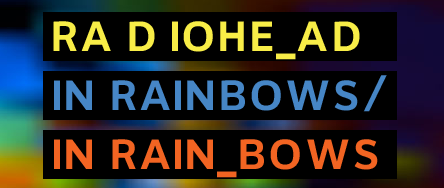When called to testify in an RIAA trial about music file sharing, Jennifer Pariser, the head of litigation for Sony BMG, embarrassed herself with a rather simplistic statement:
“When an individual makes a copy of a song for himself, I suppose we can say he stole a song.” Making “a copy” of a purchased song is just “a nice way of saying ’steals just one copy’.”
It follows that according to Sony BMG, the second largest record group in the music industry, making a backup copy of a CD to take it on vacation, ripping a CD you bought to play it on your computer or on your portable audio player, all these constitute an illegal act.
This is particularly puzzling since digital copies is the encouraged, and often only, way to listen music on MP3 or minidisc players. It is also the sole purpose of CD-copying devices. All of which are of course manufactured and sold by another division of Sony.
The Obscurantist Music Industry
It is not the first time the majors have waved around largely nonsensical statements about digital rights. The real issue is that they blur the meaning of “legality”, by assimilating a widely accepted practice (even your grand mother “makes a copy” when she imports a CD in iTunes) to the morally reprehensible act of theft.
The underlying goal is obvious: to create a state of fear and confusion where people are afraid to perform anything that the recording industry considers harmful. But the futility of this effort is just as obvious: you cannot convince the public that something they and everybody else has been doing for decades is wrong. Worse, the nuance will be lost between what exactly is illegal, and what isn’t.
An end must be put to this nonsense because it harms our society. The only acceptable definition of legality comes from the Legal code, which itself should reflect our society and culture, and not the mere interests of corporations.
Fortunately, while those gigantic capitalist dinosaurs graze happily in a fantasy world of theirs where bits are getting harder (and illegal) to copy, other actors of the music industry move on.

The Progressive Music Industry
“What we would like is the old EMI back again, the nice genteel arms manufacturers who treated music a nice side project, who weren’t too bothered about the shareholders. Ah well not much chance of that…”
On September 30, Radiohead announced that their new album, In Rainbows, would initially be sold exclusively online starting on October 10, as DRM-free MP3s… and the price is up to you. Essentially, they are leaking their album officially and providing you with a way to donate some money for it.
In December, they will start shipping discboxes for the album, containing the album on a CD, an extra B-side CD, two vinyls, artworks and a book. At the cozy price of £40, this package is mostly destined to fans and fetishists, who cherish physical possessions in addition to the music itself.
As for the people who just want a high-quality edition of the album, they will simply wait for the tentative single CD release, scheduled for early 2008.
While the scheme might sound brilliant, it really is nothing more than what music fans have been demanding for years. The only reason why this hasn’t happened before at such a scale is that most bands are bound by contract to large record labels, which do not favour the evolution of the music industry.
But Radiohead, grown weary of EMI and left without a label, could afford this little experiment on their own, which simultaneously fullfills the fans’ wildest dreams and the majors’ worst nightmare.
And they certainly aren’t the first to challenge the hegemony of the giant record groups.
Earlier this year, Sir Paul McCartney also left EMI and signed with Hear Music, the Starbucks-owned label, to release his album Memory Almost Full (I wrote another article about this earlier). In interviews, McCartney claimed that the majors were dinosaurs that weren’t interested in music, and that he preferred to treat with people with a real commitment to music.
In July, Prince distributed his latest album Planet Earth for free, along with copies of The Mail on Sunday, a British newspaper. In spite of Columbia Records subsequently refusing to distribute the album in the UK, he still managed to sell out his 21 concerts in London in 20 minutes. But after he threatened to sue YouTube and eBay because they published unauthorized reproductions of his work, one is left to wonder if it was anything more than a commercial plug.
Trent Reznor, from Nine Inch Nails, frequently criticizes the music industry and urges his fans to steal music. He also uploaded some of his own tracks to The Pirate Bay, a download website famous for its collection of illegal material. However, his contract with Universal Music Group prevented him from truly respecting his own words. On October 8, 2007, Reznor announced that Nine Inch Nails was free of any recording labels; it will be interesting to see what happens next.

To come back to Radiohead, In Rainbows is not important because it is the first album distributed freely on the Internet. Thousands of bands have done it before, including on commercial websites such as Magnatune.
Radiohead’s move is important because they are the most important rock band today. Their undeniable success and popularity will ensure that this gets a maximum of exposure and the majors won’t be able to dismiss it as insignificant.
By putting their money where their mouth is, by respecting their fans rather than shareholders, Radiohead confirmed their commitment to society and culture in the boldest manner.
They will be remembered for it.
Now, let’s go buy this Radiohead discbox…